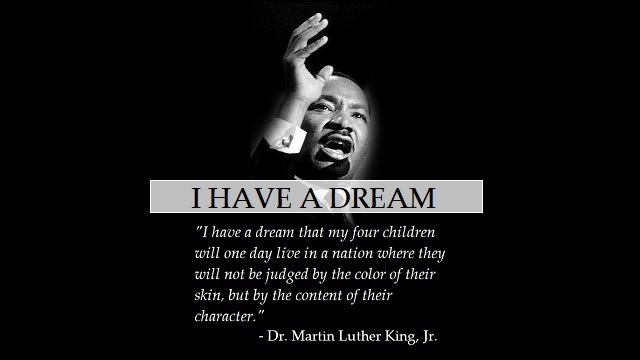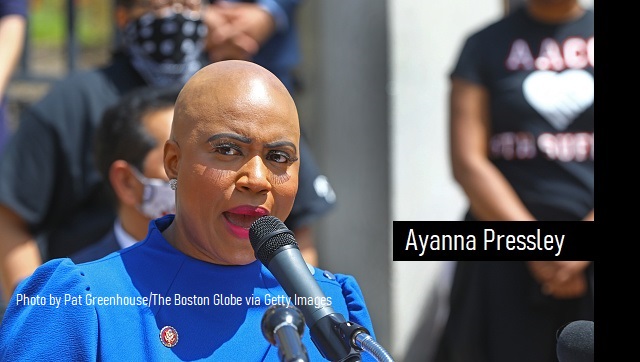Why the Left Hates Martin Luther King

Leftists hate MLK because they care more about color of skin than content of character (Kendall Qualls)
“The Martin Luther King Jr. (MLK) holiday ironically honors values despised by many on the left. King’s intellectual and moral challenge to judge people by the content of their character, not by the color of their skin, is in direct opposition to leftists’ narrative that judging people’s value begins with their skin color.
Keep in mind that many on the left never agreed with MLK’s nonviolent movement of protest in the 1960s. Stokely Carmichael, the originator of the black nationalist movement (Black Power) and the Black Panthers, once stated, “When you talk of Black power, you talk of building a movement that will smash everything Western civilization has created.” Many followers of this movement enrolled in colleges in the 1970s, earned doctoral degrees in African studies (or grievance studies), and now lead or have major influence in local, state, and federal agencies, academia, the arts, and media.
While the radicals were developing leadership roles, the majority of Americans accepted MLK’s vision of judging people by the content of their character and not by the color of their skin. Hence, many people would use the phrase, “I don’t see color” to confirm their buy-in of that vision. In fact, based on a Gallup poll, nearly 70 percent of Americans, black and white, rated race relations either good or very good back in 2002.”
Today’s Race Extremists Are Destroying Martin Luther King Jr.’s Legacy
Martin Luther King, Jr. would be shocked by the regression in America since he led the civil rights movement.
By: Scott Powell, The Federalist, January 15, 2024:l
Why do we celebrate a holiday honoring a man who was jailed 29 times and ultimately assassinated? What lessons can we learn from Martin Luther King, Jr. and from American society, much of which seems to have forgotten the contributions that led to bestowing on him a national holiday?
King, a powerful pastor and speaker, was both the catalyst for and the central figure in the civil rights movement that extended from 1955 to 1968. MLK’s sermons, speeches, and writings portray a man with an unusually discerning mind grounded in timeless truths. MLK was all about non-violent action to bring about racial and social healing through public debate and protest.
Hard to come to grips with today is how the power, healing, and truth of his message can be overshadowed by today’s divisive and demoralizing philosophies of critical race theory (CRT) and diversity, equity, and inclusion (DEI). These divide rather than unite society. MLK stressed the importance of bringing people together through constructive dialogue and seeing all people as made in God’s image. In contrast, those who have recently claimed to hold the torch of civil rights, such as the Black Lives Matter (BLM) movement, generally do so through militant action, malicious language, and confrontation.
The extremist identity politics movement in the United States is largely the progeny of BLM, an organization founded by Patrisse Cullors and Alicia Garza, who self-identify as Marxists. For those who relate identity politics to progress, a gnawing question still haunts: What good ever came out of Marxism? While some newcomers might idealistically presuppose their cause is about a socialist utopia, Marxist rule in practice has a sad history of delivering poverty, corruption, and mass death across diverse cultures.
Were it possible to resurrect and transport King into the present, he would be shocked by the regression that has taken place in America in the three generations since he led the civil rights movement of the 1950s and 1960s. He would reject the eclipse of the group, sexual, and ethnic identity paradigm over the individual merit and character-based approach for acceptance and advancement, whether in school admission or hiring and promotion in the workplace. King would condemn critical race theory because it perpetuates negative racial stereotypes against white people.
King recognized that the self-evident truth in the Declaration of Independence “that all men are created equal…with certain unalienable Rights, that among these are Life, Liberty, and the Pursuit of Happiness,” wasn’t realized in 1776, nor when the United Constitution was ratified some 14 years later. Nor was Abraham Lincoln’s “Gettysburg Address” proposition “that all men are created equal” fulfilled through the Civil War emancipation of slaves.
In King’s most famous “I have a dream” speech, delivered from the Lincoln Memorial in Washington, D.C. on August 28, 1963, he called America to rise up and fulfill its spiritual destiny. To the self-evident truth of all people having equal value, King added an equally timeless truth, that people “should not be judged by the color of their skin but by the content of their character.”
One of the timeless truths King referred to on numerous occasions was Paul’s letter to the Romans, in which he says, “Do not conform to the pattern of the world, but be transformed in the renewing of your mind.” King also drew on Thomas Jefferson’s statement, “I have sworn upon the altar of God eternal hostility against every form of tyranny over the mind of man.” He warned in a sermon as early as 1954, recorded in his book, Strength to Love, that “If Americans permit thought-control, business-control and freedom-control to continue, we shall surely move within the shadows of fascism.”
Seventy years later, we have moved way beyond shadows and now live in a matrix of fascism and communism that operate throughout most institutions within the United States under the camouflage of being woke, enlightened, and inclusive. Few American leaders have been as clearheaded about the dangers of groupthink as King. He reminds us of Emerson’s words: “Whoso would be a man must be a non-conformist.”
Drawing on Apostle Paul’s teachings, King implored that, “Any Christian who blindly accepts the opinions of the majority and in fear and timidity follows a path of expediency and social approval is a mental and spiritual slave.” King also commended those who went against the crowd, reminding us that, “The trailblazers in human, academic, scientific, and religious freedom have always been nonconformists…[so] in any cause that concerns the progress of mankind, put your faith in the nonconformist!”
King’s lesser-known speeches and sermons also provide prescient insight into our times. On numerous occasions, he quoted scripture about the need to be “wise as serpents, and harmless as doves,” arguing for people to adopt a tough mind and a tender heart. He expressed concern that the “prevalent tendency toward softmindedness is found in man’s unbelievable gullibility.” “Few people have the toughness of mind to judge critically and to discern the truth from the false, the fact from the fiction,” he noted.
AUTHOR
Pamela Geller
EDITORS NOTE: This Geller Report is republished with permission. ©All rights reserved.














